- Hey Dullblog Online Housekeeping Note - May 6, 2022
- Beatles in the 1970s: Melting and Crying - April 13, 2022
- The Beatles, “Let It Be,” and “Get Back”: “Trying to Deceive”? - October 22, 2021
NANCY CARR * Last Friday Liv Warfield, best known for her stint in Prince’s New Power Generation, performed her new song “Blackbird” on The Late Show With David Letterman, declaring “Paul McCartney got it wrong / I ain’t never want no song / I ain’t special, I ain’t strong / Black . . . bird.” It’s not clear to me why Warfield, who was born in 1979, is so angry about a pro- Civil Rights song released in 1968 — especially when the song is pitched in such a universal key that it can apply to any person or group of people striving for freedom. (It’s also unclear why the song contains the line “One and one is never three.” Somewhere John Lennon is doing a facepalm over this misquoting of “Come Together.”) And if you really want to speak truth to power about racism in the 21st century, it’s hardly Paul McCartney or the Beatles you need to be addressing.
Warfield’s got a right to her opinion, but I doubt time is on the side of her song. For some historical perspective, here are ten worthy covers of the Beatles’ “Blackbird,” listed in chronological order. If you know of other versions that should be on the list, please chime in!
Ramsey Lewis (1968): From Mother Nature’s Son, a whole album of White Album covers released the same year as the Beatles’ record. Starts with some spooky theremin before showcasing Lewis’ formidable piano chops.
Billy Preston (1972): A gloriously electric keyboard-drenched version, also featuring some snaky bass lines, from the man who injected some funkiness into the Let It Be sessions. From his album Music is My Life.
Jaco Pastorius (1981): From the album Word of Mouth. A deliberately disjointed and surprising take.
Tony Williams (1985): Jazz drummer Williams originally released this powerful version on his debut album for Blue Note, Foreign Intrigue. Has to be Ringo’s favorite of the bunch.
Arturo Sandoval (1995): Lots of horns. I bet Percy Thrillington digs this. From the tribute album I Got No Kick Against Modern Jazz.
Roger Webb and His Trio (Released 2003, recorded in late 1960s): Bonus track on the CD issue of John, Paul, and All That Jazz, originally released in 1964. Lyrical and swinging.
Beachfront Property (2002): From the a cappella Beatles tribute album “Come Together.” Starts out ethereal, and then goes Manhattan Transfer.
Sarah McLachlan (2002): From the soundtrack to I Am Sam. Heartfelt, with an arrangement very close to the original.
Connie Evingson (2003): Done in classy jazz chanteuse style, with laid-back instrumental breaks and scatting. From her Beatles cover album Let It Be Jazz.
Sarah Darling (2011): Released on the benefit album Let Us In Nashville, with proceeds benefitting breast cancer research. Kickin’ it Dixie Chicks style.


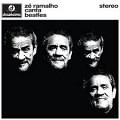
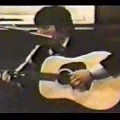
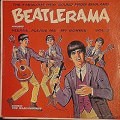
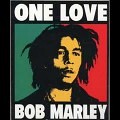

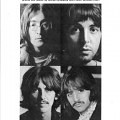
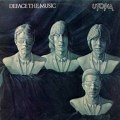
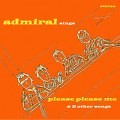
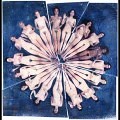
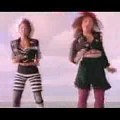

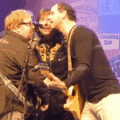
Next Liv Warfield will write a hard-hitting takedown of Santa. I mean, seriously, of all the targets she could slam, she focuses on a Beatles song that is urging people to choose for themselves the right moment to be free??? But it won’t be the first time someone has used Paul’s name to promote themselves.
How about this one?
http://www.youtube.com/watch?v=LRLQ7qGoJq4
I like it — and I can imagine it was tough to arrange the song for piano.
I forgot to add the version by Will Taylor and Strings Attached, live in Austin in 2006: http://www.youtube.com/watch?v=5XSdueJDRl0
I liked Warfield’s performance, despite the misguided stabs at McCartney. Good band. Her ‘answer’ to Blackbird seems similar to Nina Simone’s response to Revolution (which was at least contemporary and more apt). And yes, it’s odd that she’s getting worked up about a song that’s 44 years old.
But this business about the original Blackbird being about the Civil Rights movement: I never really bought that. I always assumed (although I’m happy to be corrected) that this was mentioned much later by Paul as an attempt to give social depth to a song that didn’t need any additional depth. Or maybe it was: “I was hip to what was going on at the time too – it wasn’t just John y’know.” Does anyone know when this explanation of the song’s meaning first occurred? The Barry Miles book?
From a footnote to Blackbird in Revolution in the Head:
“An alternative theory – with no supporting evidence – holds the song to be a metaphor for the black civil rights movement in America.”
So maybe it wasn’t Paul who first made the assertion – although he seems happy to have adopted it.
From the MIles book: “I had in mind a black woman, rather than a bird. Those were the days of the civil rights movement, which all of us cared passionately about, so this really a song from me to a black woman, experiencing these problems in the States…”
Hmm.
I like the Beatles’ “Blackbird” and I also think Warfield’s lyric is clever and apt. An answer song is equal parts take-down and tribute, IMO.
@Paul Saxton, I agree I don’t think he was thinking of a black woman or the civil rights movement when he wrote Blackbird. The alternate story is that he was visiting his step mother’s elderly, sick mother and he heard a blackbird singing outside her window. To me that’s a much more plausible story about the beginnings of the song. I agree that civil rights story seemed more like a self conscious afterthought to make himself seem more socially aware and therefore perhaps, ‘more like John.’ It’s a transparent attempt.
I went back to William Dowlding’s “Beatlesongs,” published in 1987, and it includes a reference to McCartney’s linking the song to the Civil Rights movement. It cites the 1980 book “The Beatles A-Z,” by Goldie Friede, as the source for the information. I don’t have the A-Z book, but Dowldling cites McCartney as having said the song was inspired by his reading an article about a Civil Rights march in 1968.
Linda and Paul, I think “Blackbird” may well have had more than one starting point. I believe it’s entirely possible that the song was McCartney’s response to hearing an actual blackbird, reading that article, and thinking about making a new life for himself by marrying Linda Eastman. That would fit the way McCartney seems to work, especially with story songs.
Here he is on “Lady Madonna,” for instance: “‘Lady Madonna’ started off as the Virgin Mary, then it was a working-class woman, of which obviously there’s millions in Liverpool. There are a lot of Catholics in Liverpool because of the Irish connection.” Source: http://www.rollingstone.com/music/lists/100-greatest-beatles-songs-20110919/lady-madonna-19691231.
While it’s true that McCartney can defensively overstate things, I think it’s also true that he often gets too little credit for being “socially aware.” (And that’s a linked dynamic: I think the defensive overstatement stems from the treatment he’s received at the hands of some critics.) McCartney’s songs that incorporate a female perspective and/or details about women’s lives are especially noteworthy in terms of social awareness (“Eleanor Rigby,” “For No One,” Another Day,” etc.).
I also think Warfield’s song in response to the Beatles’ “Blackbird” likely has a complicated genesis. To what extent it’s a sincere expression of outrage over her perception that McCartney was being patronizing in his song, and to what extent it’s an effort to gain attention by name-checking someone famous, as Drew suggests, is hard to determine. I don’t think it’s a hard and fast either/or.
At the least, her anger about the song seems to me to lack an understanding of its context. 1968 is sure not 2014. And the stakes are actually quite low with Warfield’s song: what’s she really risking here, beyond people rolling their eyes if they disagree with her reading of the Beatles’ song? I recall seeing Sweet Honey in the Rock perform in 1993 and address the Rodney King verdict during the concert. Now that was a gutsy move, comparable to speaking out today about efforts to roll back voting rights laws.
@Nancy I never meant to give the impression that Paul is NOT socially aware or that he is not as socially aware as John. On the contrary he was/ is as socially aware as John and because I find him more open minded and thoughtful than John appeared to be, he was probably even MORE socially aware than John. No I was suggesting exactly what you said above…that his comments that the song was (suddenly?) About the civil rights movement seem manufactured to me…more like a defensive attempt to fight off criticism before it begins. Paul has always been defensive about seeming more shallow than John and who can blame him. He certainly has a reason to be. Yes of course it may be that he really did read an article about the civil rights movement and hearing the blackbird outside his step grandmother’s window, may have used both ideas as the inspiration for the song. However, I feel that I heard the black bird story long before I suddenly heard this comparatively new story about the civil rights movement. When I heard the later story years later, I wondered what had happened to the first story about the black bird. I could be completely wrong, but I had the feeling he felt the civil rights story sounded better than the story of being at his step grandmother’s bed side. Neither John nor Paul were ever above inventing stories that sounded better than what really happened, so unfortunately, maybe I’m just conditioned to take some of their comments with a grain of salt.
Linda, I think it’s smart to take Lennon’s and McCartney’s comments about the genesis/meaning of their songs with a serving of salt. I think there are many good reasons to do so, some specific to the Beatles and some not.
1) Creative artists of any kind aren’t necessarily good at analyzing their own work. Some are, some aren’t.
2) Artistic inspiration is often from more mixed sources than will make a good story/sound bite.
3) The Beatles were using a fair amount of drugs starting in the mid-1960s, so their memories may not always be the clearest.
4) The Beatles heard plenty from other people about what their music meant, and others’ interpretations may have colored their own.
Interestingly, I’ve always found McCartney’s obviously issue-driven songs to be among his weakest. He’s a much better storyteller than polemicist.
Nancy: while I agree with much of what you’re saying (re McCartney and social awareness and women and his treatment at the hands of critics and the genesis of other songs and etc.) I still don’t buy that Blackbird had anything to do with the Civil Rights movement. But then that might just be me wishing that it didn’t have anything to do with the Civil Rights movement because… well, because I always dislike it when people (critics, that is) attempt to validate pop music beyond itself. If you see what I mean. In this case, why can’t it be enough that what we have here is a gorgeous, perfect song about a bird? It simply doesn’t need any additional (serious, socially aware) story attached to it. And it’s a bit depressing that some people (maybe McCartney himself) feel that it does.
Paul, I agree that it’s annoying when critics (or songwriters) feel that pop songs have to be validated by referring to some larger social issue, and it’s certainly possible that McCartney is overstating the extent to which “Blackbird” was a conscious response of his to the Civil Rights movement. I just don’t have a hard time believing that *some* awareness of it went into the song, along with hefty doses of other elements.
@Paul excellent point. I also get annoyed when critics try to validate or invalidate pop music based on how socially aware the lyrics are. Really this is music we are talking about here…not political poetry. And yes I think that over the years Paul has become caught up in believing he needed to be socially aware in his songs or he would be viewed as irrelevant. I don’t really care what the song is about because I listen to the music, so maybe on some level I too was hoping the song was not really about the civil rights movement.
Ah, and Sweet Honey in the Rock. Marvellous.One of the most uplifting gigs I’ve ever been to, seeing them at Nottingham Playhouse in 1990.
Sweet Honey in the Rock: Have just remembered Bernice Johnson Reagon good humouredly berating my dad for being the only member of the audience not getting up to dance – until he revealed his artificial leg. Oh, how we laughed.
That’s a great song, and I’m checking out more Liv Warfield. Sure she name-checks him, but I don’t get the impression she’s slagging Paul McCartney particularly–she is using his classic song, a shared cultural reference point, to generate her own song. It’s like someone writing a response to a Cole Porter song in the 80s. “It’s too darn cold…”
Lennon’s lust for relevance was rooted in artistic insecurity, and only really came to the fore after he ran out of new internal territory to explore, and felt he needed to pull out every stop to prove HE was the genius. Someone like Yoko Ono–a worthy though minor artist utterly unable to connect with a mass audience–needs those kind of tricks (timeliness, taboo-busting). People like Lennon and McCartney don’t, and when they employ them, their work is lessened through specificity.
I can’t say one way or the other what Paul “really” meant by ‘Blackbird’, but in his favor he does seem to have a particular strength in universalizing song lyrics so they can have both a specific and a broader meaning. ‘Hey Jude’ is specifically for John Lennon’s son, for example, but the lyrics are written in a way to de-particularize the subject so that any listener can relate his or her own circumstance to the song. Also, during the Get Back sessions, Paul ran through a very political song — Commonwealth — in response to Enoch Powell’s ‘Rivers of Blood’ speech, which had warned Britain of the dangers of immigration. Paul simply trashes Enoch Powell, whom he mentions over and over by name, with his satire. So I for one give Paul much more credit in the who’s-more-politcally-aware sweepstakes. Lennon’s politics were all over the place, though sometimes very incisive, and he certainly was ready to wear them on his sleeve.
I tend to agree with Joe, especially his reference to ‘Commonwealth’, Paul’s utterly brilliant rock ‘n roll murder on Enoch Powell’s racism of a kind that we can still see alive in current Europe, FPÖ, PVV, Front National, etc.
‘As a young boy, looking for love’ and meaning in life I was so happy with the jams that conatins references to racism and Enoch Powell, and that included the bits of ‘No Paikistani’s’, and could never understand why they didn’t go forward with that making a good song out of it, except that not a lot of people would get the essence… Satire was never oart of The Beatles’ music. I think not only Brian Epstein cautioned the boys to refrain from commercially dangerous political expression, but Paul as well, they understood very well satire doesn’t run in pop music.
This brings up another point that Beatles-speculators like us here, should consider. George Melly wrote in ‘Revolt into Style’ about how pop music itself did not need the artistic depth of sociatal relevance except for a good song and selling a lot, which made the song being POP-ular. Yet there was this artistic cultural thing in art called pop-culture, of which not only Andy Warhol was part, but the designer of the Sgt. Pepper cover, Peter Blake, was an englishman in pop-culture that was at the forefront. Many pop-musicians and even more so their fans, including suckers like Jann Wenner, wanted to make their stars more representatives or part of pop-culture than pop-stars. Wenner’s slashing of his editor of music-reviews Greil Marcus over the McCartney solo album in 1970 was an example of that.
As the political topical work of John is underrated, who dares to say songs like ‘Woman is the Nigger of the World’ musically sucks? It is straight and good rock ‘n roll, though it doesn’t make you dance, I agree. The same goes for parts of Paul’s work, his very bad choice of singles and album design after teh mid-seventie and his often lousy lyrics confuse listeners and analist far too often and up until today, and this causes a lot of people to misunderstand and to misrepresent some of his work.
Paul McCartney the songwriter was never shy of strong stuff… Think of the cocaïne driven sex in ‘Hi Hi Hi’, the serious call out to John Lennon in ‘Dear Friend’, and a song, I dunno right now, on ‘London Town’… Let’s forget the cliche we project on Paul McCartney as a man who felt inferior to John Lennon, and let us forget about the silly let’s-make-Lennon-the-progressive-artist campaign by folks like Jann Wenner… And judge a song for what it is… And how we can understand it now… This goes for Matthew’s Passion by Bach just as much as this approach should work for songs by Paul McCartney.
Not revisionist.
http://www.thebeatlesrarity.com/2013/06/17/beatles-rarity-of-the-week-how-do-you-do-paul-mccartney-1968/
“Paul then hums a few bars leading himself into “Blackbird” from the newly released Beatles 2-LP set. Mary Hopkin sings along for part of the performance. As he plays, Paul jokes with Donovan about playing the song to Diana Ross (a black “bird”) and that she was offended. He then admits seriously that the song was inspired by reading about race riots in the newspaper.”
https://www.youtube.com/watch?v=YDAO15rrshk – 4.00-4.15
@Nicole: Well, well, well. Thank you for that.
Hint. The Irish family name Lennon means Blackbird. Paul is great at covering up the real personal meaning of his songs if he wants to. PR meaning and personal meanings. The lyrics sounds like John. Think about it 😉
I love this interpretation. Thanks @Michelle!